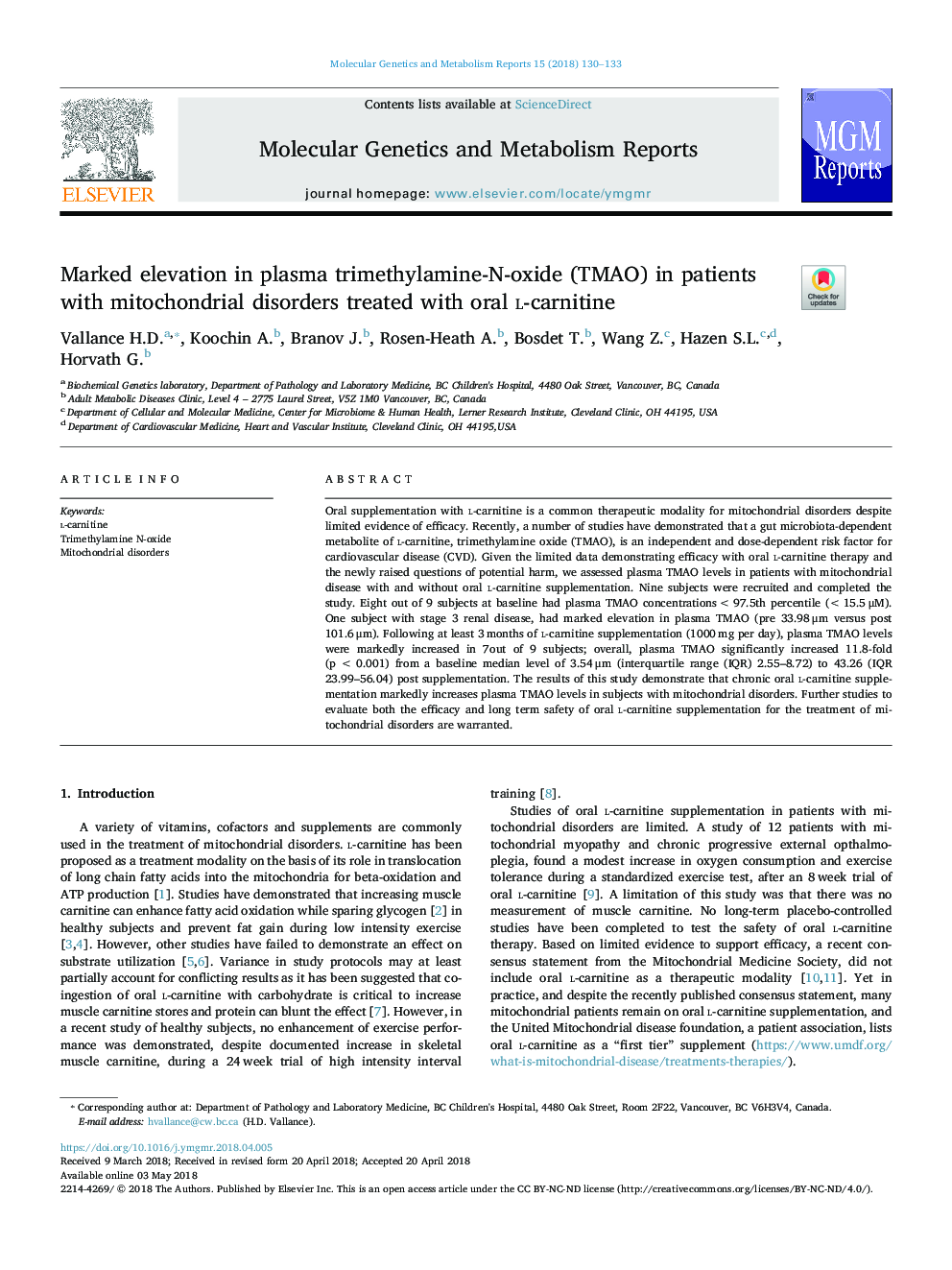| Article ID | Journal | Published Year | Pages | File Type |
|---|---|---|---|---|
| 8390637 | Molecular Genetics and Metabolism Reports | 2018 | 4 Pages |
Abstract
Oral supplementation with l-carnitine is a common therapeutic modality for mitochondrial disorders despite limited evidence of efficacy. Recently, a number of studies have demonstrated that a gut microbiota-dependent metabolite of l-carnitine, trimethylamine oxide (TMAO), is an independent and dose-dependent risk factor for cardiovascular disease (CVD). Given the limited data demonstrating efficacy with oral l-carnitine therapy and the newly raised questions of potential harm, we assessed plasma TMAO levels in patients with mitochondrial disease with and without oral l-carnitine supplementation. Nine subjects were recruited and completed the study. Eight out of 9 subjects at baseline had plasma TMAO concentrations <97.5th percentile (<15.5â¯Î¼M). One subject with stage 3 renal disease, had marked elevation in plasma TMAO (pre 33.98â¯Î¼m versus post 101.6â¯Î¼m). Following at least 3â¯months of l-carnitine supplementation (1000â¯mg per day), plasma TMAO levels were markedly increased in 7out of 9 subjects; overall, plasma TMAO significantly increased 11.8-fold (pâ¯<â¯0.001) from a baseline median level of 3.54â¯Î¼m (interquartile range (IQR) 2.55-8.72) to 43.26 (IQR 23.99-56.04) post supplementation. The results of this study demonstrate that chronic oral l-carnitine supplementation markedly increases plasma TMAO levels in subjects with mitochondrial disorders. Further studies to evaluate both the efficacy and long term safety of oral l-carnitine supplementation for the treatment of mitochondrial disorders are warranted.
Related Topics
Life Sciences
Biochemistry, Genetics and Molecular Biology
Biochemistry, Genetics and Molecular Biology (General)
Authors
Vallance H.D., Koochin A., Branov J., Rosen-Heath A., Bosdet T., Wang Z., Hazen S.L., Horvath G.,
